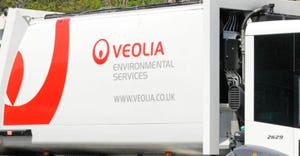DSNY Proposes New Organics Recycling Requirements for Businesses
The proposal would require additional food-related businesses to separate organic waste.

The City of New York Department of Sanitation (DSNY) announced a proposal that would require additional food-related businesses to separate organic waste. The proposal would cover approximately 8,500 additional businesses and is expected to keep about 100,000 tons of food waste out of landfills every year. The proposed rules build on the success of previous organics separation requirements for large food-related businesses, according to DSNY.
Food scraps and other organic waste make up more than one-third of all commercial waste. Diverting this material from landfills—to be used as a natural soil amendment through composting or clean, renewable energy through anaerobic digestion—is a key component of the city’s goal of sending zero waste to landfills. Keeping food scraps and other organic waste out of landfills also reduces the emissions of methane gas, a harmful greenhouse gas and major contributor to climate change. Encouraging businesses to reduce, rescue and recycle organic waste is critical to meeting the city’s greenhouse gas emissions reduction goals.
“Businesses in New York City produce more than 650,000 tons of food waste annually, much of which is sent to landfills where it emits harmful methane gas,” said Sanitation Commissioner Kathryn Garcia in a statement. “Thousands of businesses in New York City, from coffee shops to baseball stadiums, separate their organics for composting or to create renewable energy. Today’s announcement begins the final phase of implementing the city’s landmark law requiring large businesses to separate their food waste, and it represents an important step toward our zero waste goals.”
The proposed rules would require the following types of businesses to separate and ensure beneficial use of their organic waste:
Foodservice establishments larger than 7,000 square feet, such as restaurants
Chain foodservice establishments with two or more locations in NYC
Retail food stores larger than 10,000 square feet, including grocery stores
Food prep spaces larger than 6,000 square feet
Foodservice establishments in hotels with 100 or more rooms
Catering establishments hosting events with attendance of more than 100 people
Sponsors of temporary public events
Businesses covered by this proposal would be given the option to arrange for collection by a private carter, transport organic waste themselves or manage it onsite using in-vessel composting, aerobic or anaerobic digestion systems, subject to registration with DSNY and compliance with the city’s sewer discharge regulations.
The proposed rules will be subject to a public comment period and hearing on November 20. They would take effect six months after they are adopted, which would be followed by a six-month grace period before any fines can be imposed. DSNY will consider all comments received during the public comment period before it publishes final rules.
In landfills, food scraps and other organic waste decompose and generate methane gas, which the U.S. EPA estimates has a global warming potential 28 to 36 times greater than carbon dioxide. The city has recently taken more aggressive steps to slash greenhouse gas emissions, including reducing emissions by 80 percent by 2050 and working with businesses, municipalities and other nations to limit global temperature increase to 1.5 degrees Celsius.
In 2015 and 2017, DSNY proposed rules designating the first and second set of businesses required to comply with commercial organics separation requirements according to Local Law 146 of 2013. The final adopted rules cover:
Foodservice establishments larger than 15,000 square feet
Chain foodservice establishments with 100 or more locations in NYC
Retail food stores larger than 25,000 square feet
Foodservice establishments in hotels with 150 or more rooms
Arenas and stadiums with a seating capacity of at least 15,000 people
Food manufacturers larger than 25,000 square feet
Food wholesalers larger than 20,000 square feet
To develop the new proposed rules, DSNY surveyed organics processing facilities, including composting sites and anaerobic digestion facilities, across the region. DSNY determined that sufficient processing capacity exists to manage the organic waste generated by the proposed covered establishments. Since 2017, several facilities have opened or expanded available processing capacity, and others are at various stages of development.
About the Author(s)
You May Also Like


